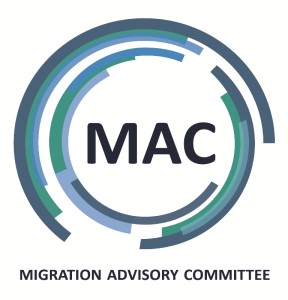Review of the shortage occupation list: 2020 - letter to the Home Secretary
Updated 19 October 2020
Migration Advisory Committee
1st Floor, Peel Building
2 Marsham Street
London
SW1P 4DF
29th September 2020
Rt Hon Priti Patel MP
Home Secretary
2 Marsham Street
London
SW1P 4DF
Dear Home Secretary,
Today we published our Review of the Shortage Occupation List 2020.
We have carried out this review at a time of unprecedented change and uncertainty in the UK economy and labour market. After a period of relative stability, the COVID-19 pandemic has resulted in a significant shock to the labour market. We have considered this context when making recommendations. Where official data is not yet available, we have considered alternative sources of real time data and stakeholder insight to account for the occupations most impacted by COVID-19.
We received a large quantity of evidence across a wide range of industries. We are incredibly grateful to stakeholders for their input during this challenging time and look forward to continued engagement.
Health and social care has been of high public concern during the pandemic. The MAC has argued for some years now that funding social care to a level that enables higher wages to be paid, and consequently makes jobs more attractive to the domestic workforce, is the right way to address the workforce issues in the sector, rather than relying on migrant workers to fill the gaps. We continue to hold this view. However, the risks of this funding increase not happening in a timely manner are stark. If that does not occur, or occurs with substantial delay, we would expect the end of freedom of movement to increase the pressure on the social care sector, something that would be particularly difficult to understand at a time when so many care occupations are central to the COVID-19 pandemic frontline response. We have recommended adding to the SOL senior care workers and several other health occupations who meet the required skill level for the skilled worker visa route.
We would appreciate a timely government response to our recommendations, in order to plan our engagement activity and provide stakeholders enough time to input to the proposed 2021 SOL review. Going forward, we propose a regular annual cycle of engagement and reporting for the SOL. In order to facilitate this, the Home Office will need to provide a clear indication of timelines well in advance which we would communicate to stakeholders. This is integral as the MAC is highly reliant on industry insight and expertise when making recommendations.
We have engaged extensively with devolved nations (DN) in this review, in order to understand the specific circumstances of nations and account for this in our recommendations for DN specific SOLs. Alongside this we are also expanding our recruitment within the MAC secretariat to strengthen connections to devolved governments and stakeholders.
In our past three reports, we have highlighted that there is significant opportunity to improve migration analysis and our understanding of the impacts of migration policy, through access to existing linked datasets and linking other datasets held across government. We welcome the recent messages from across government on the importance of data access for specialists to analyse the effectiveness of policy. This is essential for the work of the MAC. We are continuing to work with the Home Office and other departments to ensure that we have access to the data we need to make recommendations based on the best available evidence. We would appreciate your continued support on this. We have been engaged with the Department for Work and Pensions for over two years to access Annual Survey of Hours and Earnings data linked to the Migrant Worker Scan. We are pleased that DWP have agreed to provide this dataset imminently, enabling us to publish analysis of labour market progression of migrants in our upcoming Annual Report.
We will be publishing our Annual Report at the end of the year, where we will report on key aspects of the UK’s immigration system. Additionally, we plan to carry out a further review of the Shortage Occupation List and its methodology, following the implementation of the points-based system. We will also be updating analysis using the ONS’ latest system of occupational classification, which is needed to determine skill levels for occupations and therefore which occupations are eligible for the skilled worker route.
We will continue to build on work that we have carried out and develop the analysis of migration policy. We look forward to further engaging with the Home Office and providing our independent evidence-based advice in the coming year.
On behalf of the Migration Advisory Committee,
Yours sincerely,
Brian Bell
Chair, Migration Advisory Committee

